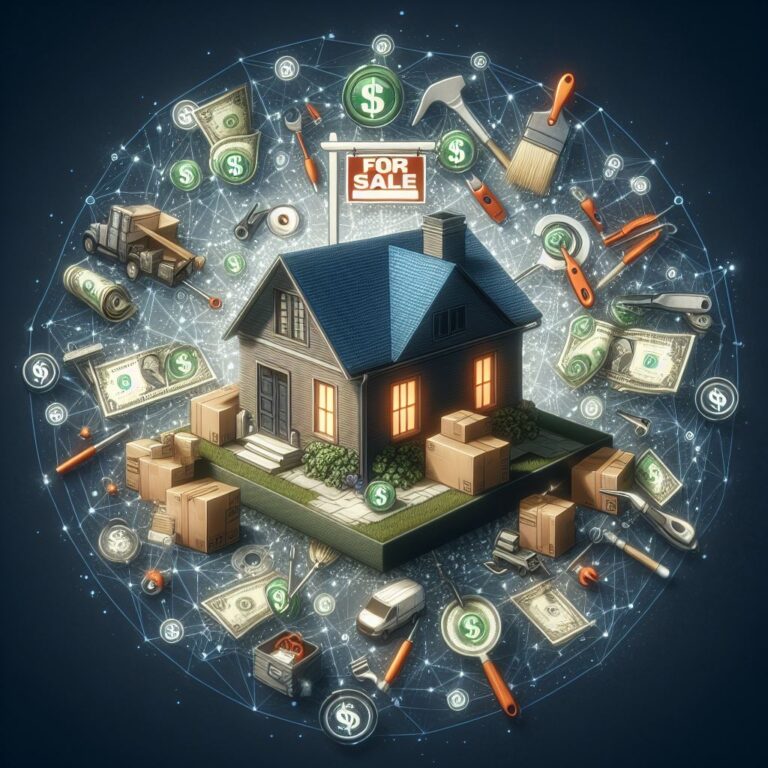Renting vs. Buying: Debunking Costly Homeownership Myths is an informative article that explores the financial considerations involved in deciding whether to rent or buy a home.
This article aims to provide a balanced analysis of the advantages and disadvantages of each option, dispelling common misconceptions that can lead to costly mistakes.
It addresses the myth that renting is equivalent to throwing money away, highlighting the financial flexibility and personal/professional choices that renting can offer.
Additionally, it acknowledges the potential long-term financial benefits of homeownership for those seeking to build wealth.
The article also explores the current state of the housing market after the recession, addressing mortgage options and debunking related myths.
By shedding light on these topics, this article aims to assist readers in making informed decisions regarding their housing choices.
Key Takeaways
- Renting provides flexibility and freedom in the short term, allowing for changes in jobs, schools, and locations.
- Rent may become a bigger financial burden in the future, as average rents have risen almost twice as fast as household income since 2000.
- Buying a home comes with additional expenses such as property taxes, homeowners insurance, and maintenance costs.
- Renting allows for more financial flexibility, as there is no need to save for a down payment or worry about unexpected expenses.
Financial Considerations of Renting Vs. Buying
When considering the financial aspects of renting vs. buying, it is important to carefully analyze the specific costs and benefits associated with each option.
Renting can provide short-term flexibility and freedom, but average rents have risen almost twice as fast as household income since 2000, indicating that rent may become a bigger financial burden in the future.
On the other hand, buying a home comes with additional expenses such as property taxes, homeowners insurance, and maintenance costs. Renting allows for more financial flexibility, as there is no need to save for a down payment or worry about unexpected expenses.
The decision to rent or buy depends on various factors, including the price of homes in the area, rent costs, mortgage rates, and inflation. It is crucial to analyze these factors comprehensively before making a decision.
Debunking the Myth of Renting as 'Throwing Money Away
Renting a home is often portrayed as 'throwing money away', but this popular misconception fails to acknowledge the numerous advantages and financial flexibility that renting provides. While homeownership may offer long-term financial benefits, renting can be a smart financial decision in the short term.
To understand the financial implications of renting versus buying, let's compare the two options in a table:
| Renting | Buying |
|---|---|
| No need to save for a down payment | Requires a down payment |
| No property taxes or homeowners insurance | Property taxes and insurance costs apply |
| No maintenance costs | Responsible for maintenance and repairs |
| Flexibility to move or change jobs easily | Tied down to a specific location |
| Lower upfront costs | Higher upfront costs |
As the table illustrates, renting provides more financial flexibility and fewer expenses compared to homeownership. Renters are not burdened with saving for a down payment or worrying about unexpected expenses like maintenance and repairs. Additionally, renting allows for the freedom to easily change jobs or move to a new location.
While buying a home may be a wise choice for those looking to build long-term wealth, it's important to consider the advantages that renting offers. Renting provides the flexibility and financial freedom that may be beneficial in certain stages of life.
Buying a Home After the Recession: Myths and Realities
After the recession, potential homebuyers may encounter certain myths and realities that shape their perceptions of buying a home. These include:
- While subprime mortgages are harder to find, qualifying for a conventional or FHA mortgage is still possible with a solid income and reasonable credit score.
- In 2015, Americans took out 7.71 million new first mortgages, totaling $1.82 trillion, indicating that homebuying is still a prevalent option.
- A credit score higher than 646 increases the chances of qualifying for a mortgage, emphasizing the importance of maintaining good credit.
- Down payment requirements can vary, with FHA loans offering rates as low as 3.5% and VA programs typically requiring no down payment, suggesting that homeownership is attainable with minimal upfront costs.
These realities debunk the myth that homeownership is no longer achievable after the recession. With the right financial qualifications and knowledge, individuals can still pursue their dream of owning a home.
The Rising Cost of Renting
The increasing financial burden of renting is becoming a growing concern for many individuals and households. In recent years, the cost of renting has been rising at an alarming rate, outpacing the growth of household income. According to data, average rents have increased almost twice as fast as income since 2000. This trend suggests that renting may become an even bigger financial strain in the future.
There are several factors contributing to the rising cost of renting. One factor is the imbalance between supply and demand in the rental market. With an increasing number of people opting to rent instead of buying a home, the demand for rental properties has surged, driving up prices. Additionally, rising property taxes and maintenance costs have also contributed to the increase in rental prices.
The rising cost of renting has significant implications for individuals and households. It can make it more challenging for people to save for a down payment on a home, as a larger portion of their income goes towards rent. It can also limit their ability to build wealth and make long-term financial investments.
Additional Expenses of Homeownership
One significant aspect of homeownership is the multitude of expenses associated with owning a home. These additional expenses can have a significant impact on the overall cost of homeownership.
Here are four key expenses to consider:
- Property taxes: Homeowners are responsible for paying property taxes, which can vary depending on the location and value of the property. These taxes can add a substantial amount to the monthly expenses of homeownership.
- Homeowners insurance: Protecting your investment is crucial, and homeowners insurance is a necessary expense. The cost of insurance can vary based on factors such as the location of the home and the coverage amount.
- Maintenance costs: Unlike renting, homeowners are responsible for the maintenance and repairs of their property. This can include regular upkeep, such as lawn care and cleaning, as well as unexpected repairs, which can be costly.
- HOA fees: If you live in a community with a homeowners association (HOA), you may be required to pay monthly or annual fees. These fees contribute to the maintenance and management of shared amenities and common areas.
Understanding and budgeting for these additional expenses is essential when considering homeownership. They can significantly impact the affordability of owning a home and should be carefully considered before making a decision.
Renting for Financial Flexibility
Renting offers individuals the financial flexibility to pursue personal and professional opportunities without the constraints of homeownership. It allows for greater mobility, as renters can easily relocate for job opportunities or personal preferences without the hassle of selling a property. Additionally, renting eliminates the need to save for a down payment, which can be a significant financial burden for many prospective homeowners.
Data shows that average rents have risen almost twice as fast as household income since 2000, indicating that rent may become a bigger financial burden in the future. Renting also avoids additional expenses associated with homeownership, such as property taxes, homeowners insurance, and maintenance costs.
Long-Term Financial Benefits of Homeownership
Homeownership offers individuals the opportunity to build wealth and secure long-term financial stability. Here are four key long-term financial benefits that come with owning a home:
- Appreciation: Over time, the value of a home tends to increase, allowing homeowners to build equity. According to the Federal Housing Finance Agency, home prices have been steadily rising, with an average annual appreciation rate of 5.3% since 1991.
- Mortgage Payoff: Unlike renting, where monthly payments go towards the landlord's income, homeowners build equity with each mortgage payment. Eventually, homeowners can own their home outright, eliminating the need for monthly payments and providing a significant increase in disposable income.
- Tax Benefits: Homeownership comes with various tax advantages, such as deductible mortgage interest and property tax payments, which can reduce taxable income and result in significant savings.
- Retirement Asset: Owning a home can serve as a retirement asset. Once the mortgage is paid off, homeowners can downsize, sell the property, or use it as rental income to supplement retirement funds.
These long-term financial benefits highlight the potential wealth-building opportunities that come with homeownership. However, it is crucial to consider individual circumstances and conduct thorough financial planning before making a decision.
Qualifying for a Mortgage After the Recession
After the recession, individuals seeking to obtain a mortgage may face certain challenges in meeting the qualifying criteria. The mortgage industry underwent significant changes following the recession, with lenders becoming more cautious and stringent in their lending practices. However, it is still possible to qualify for a mortgage with a solid income and reasonable credit score.
In 2015, Americans took out 7.71 million new first mortgages, totaling $1.82 trillion, indicating that obtaining a mortgage is still a viable option for many. A credit score higher than 646 increases the chances of qualifying for a mortgage, and down payment requirements can vary. FHA loans offer rates as low as 3.5%, while VA programs typically require no down payment.
It is important for individuals to have an emergency fund to cover unexpected expenses, including mortgage payments, regardless of the type of mortgage chosen.
Importance of an Emergency Fund for Homeowners
The presence of an emergency fund is crucial for homeowners, as it provides financial security and helps cover unexpected expenses. Having an emergency fund allows homeowners to handle unforeseen circumstances without resorting to borrowing or jeopardizing their financial stability.
Here are four reasons why an emergency fund is important for homeowners:
- Protection against job loss: In the event of a job loss, an emergency fund can provide a financial safety net to cover mortgage payments and other essential expenses until a new source of income is secured.
- Home repairs and maintenance: Owning a home comes with the responsibility of maintenance and repairs. An emergency fund can help cover the cost of unexpected repairs, such as a leaking roof or a malfunctioning HVAC system, preventing homeowners from going into debt or depleting their savings.
- Medical emergencies: Health issues can arise at any time, leading to expensive medical bills. An emergency fund can help homeowners navigate these financial challenges without compromising their overall financial well-being.
- Natural disasters: Natural disasters can wreak havoc on homes, causing extensive damage and requiring costly repairs. An emergency fund can provide the funds needed to rebuild and recover after such events, ensuring homeowners can get back on their feet.
Frequently Asked Questions
What Are Some Potential Long-Term Financial Benefits of Homeownership?
Potential long-term financial benefits of homeownership include building equity, which can serve as a valuable asset for future financial endeavors. Additionally, homeownership offers potential tax benefits and the ability to customize and improve the property, potentially increasing its value over time.
How Do Rising Rental Costs Compare to Household Income Growth Since 2000?
Rental costs have risen almost twice as fast as household income since 2000, suggesting that rent may become a greater financial burden in the future. This highlights the need for careful consideration when deciding between renting or buying a home.
What Are Some Additional Expenses Associated With Homeownership?
Some additional expenses associated with homeownership include property taxes, homeowners insurance, and maintenance costs. These costs can add up and should be considered when deciding between renting and buying a home.
How Can Renting Provide Financial Flexibility?
Renting provides financial flexibility by eliminating the need to save for a down payment and reducing the burden of unexpected expenses. It allows for freedom to change jobs, go to school, or move, without being tied down to a specific neighborhood or job market.
What Are Some Myths and Realities About Buying a Home After the Recession?
Qualifying for a mortgage after the recession is still achievable, with solid income and reasonable credit score. Americans took out 7.71 million new first mortgages in 2015. Down payment requirements vary, with FHA loans offering rates as low as 3.5%.






